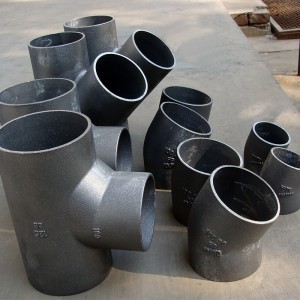Aug . 17, 2024 04:10 Back to list
Exploring the Efficiency and Benefits of a 90000 BTU Boiler for Your Home
Understanding the 90,000 BTU Boiler Efficiency and Application
When it comes to heating systems, the BTU (British Thermal Unit) is a crucial measurement that helps us understand the energy output of heating devices, including boilers. A 90,000 BTU boiler is a powerful unit capable of providing adequate heating for various residential and commercial applications. In this article, we will explore what a 90,000 BTU boiler is, how it operates, its efficiency, applications, and considerations for choosing the right boiler for your needs.
What is a BTU?
A BTU is the amount of energy required to raise the temperature of one pound of water by one degree Fahrenheit. Therefore, a boiler rated at 90,000 BTUs can theoretically heat 90,000 pounds of water by one degree Fahrenheit in one hour, which illustrates its heating capacity. This makes BTUs a vital unit of measurement for evaluating heating systems.
How Do 90,000 BTU Boilers Work?
Boilers operate by converting fuel into heat. A 90,000 BTU boiler can be fueled by natural gas, propane, or oil, and the choice of fuel can significantly affect efficiency and operating costs. The combustion process produces hot gases, which then heat water in the boiler’s tank or heat exchanger. The resulting hot water or steam is then circulated through pipes and radiators or distributed via a forced-air system to warm the living space.
Efficiency Ratings
Efficiency is an essential factor when considering any heating system. The efficiency of boilers is often expressed as Annual Fuel Utilization Efficiency (AFUE), which measures the percentage of fuel converted into usable heat over a year. A higher AFUE rating means better efficiency. Modern 90,000 BTU boilers can have an AFUE rating over 90%, indicating that they convert most of their fuel into heat, making them a cost-effective choice in the long run. Conversely, older models may have lower efficiency ratings, leading to higher fuel costs and environmental impacts.
90000 btu boiler

Applications of 90,000 BTU Boilers
A 90,000 BTU boiler is suitable for medium to large residential homes and some commercial buildings. It can provide sufficient heating for homes with multiple bathrooms, large living areas, or zones that require separate temperature controls. In commercial settings, it can be used in applications such as restaurants, warehouses, and small manufacturing facilities where space heating is needed.
Factors to Consider When Choosing a Boiler
Selecting the right boiler involves several factors beyond just BTU ratings. Firstly, consider the specific heating needs of your space. Performing a heat load calculation can help you determine the appropriate BTU output required for your home. Secondly, consider the type of fuel available in your area and the cost implications associated with it. Natural gas is often cheapest for many homeowners, but propane and oil can also be viable options depending on the location.
Additionally, evaluate the available space for installation, as some boilers require more room than others for proper airflow and maintenance access. Lastly, consider the boiler’s warranty, maintenance requirements, and reviews from other users, as these factors can affect long-term satisfaction and performance.
Conclusion
A 90,000 BTU boiler can be an effective solution for heating medium to large spaces efficiently. By understanding how these boilers operate, their efficiency ratings, and the applications they suit, you can make informed decisions about your heating needs. Whether you are replacing an existing system or installing a new one, investing in a properly sized and efficient boiler can lead to comfort, savings, and environmental benefits for years to come.
-
Durable Centrifugally Cast Iron Water Main Pipe
NewsAug.11,2025
-
Centrifugally Cast Iron Water Main Pipes for Reliability
NewsAug.10,2025
-
High-Quality Centrifugally Cast Iron Water Main Pipes
NewsAug.09,2025
-
Durable Cast Iron Water Main Pipe & Drainage Solutions
NewsAug.08,2025
-
Buy Cast Iron Pipe: Premium Ductile Iron & Drain Solutions
NewsAug.07,2025
-
Durable Cast Iron Water Main Pipe | Buy Ductile Pipe
NewsAug.06,2025


